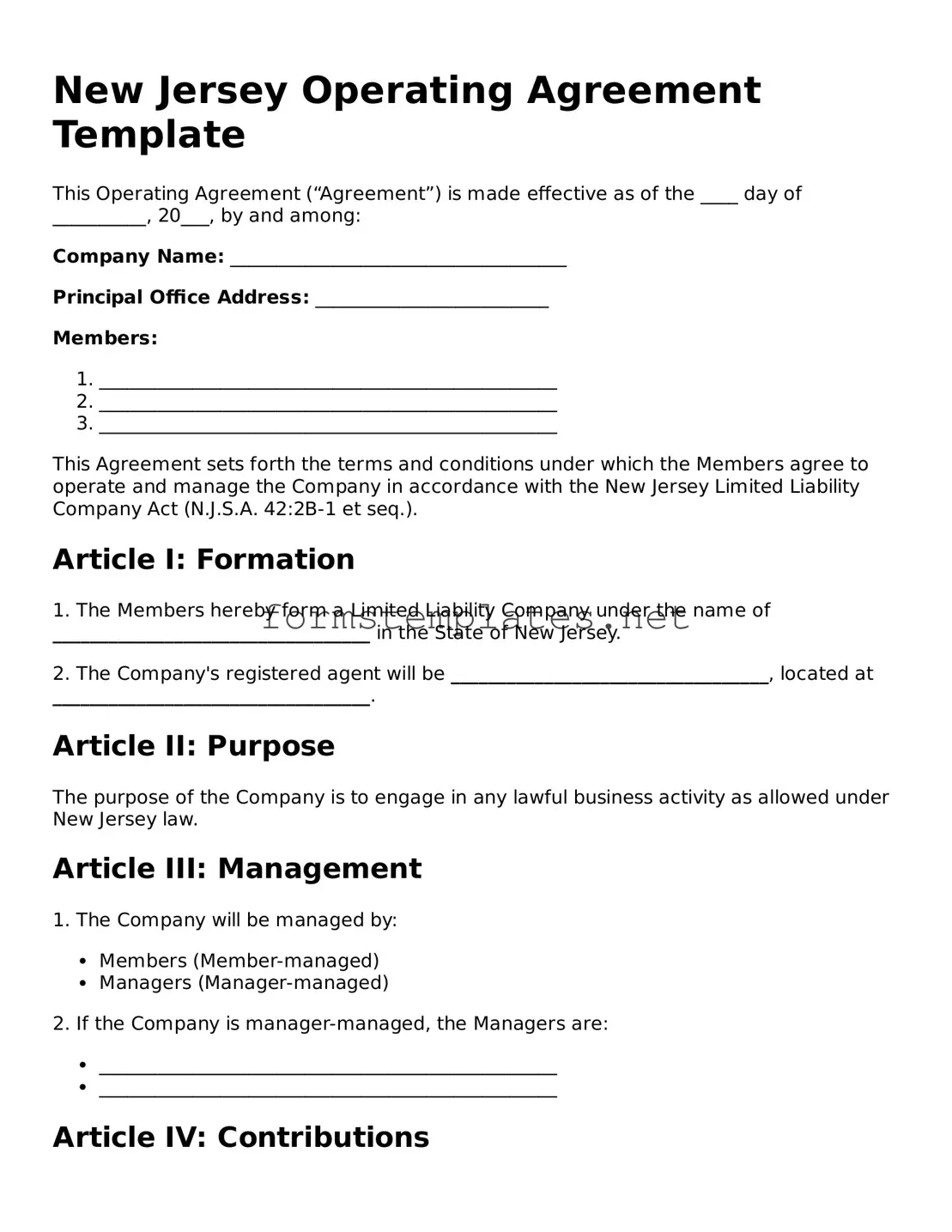Attorney-Approved New Jersey Operating Agreement Template
The New Jersey Operating Agreement form is a crucial document for limited liability companies (LLCs) that outlines the management structure and operating procedures of the business. This agreement serves to protect the interests of the members and clarify the roles and responsibilities within the company. Understanding this form is essential for ensuring compliance with state laws and fostering a successful business environment.
Open Editor Now

Attorney-Approved New Jersey Operating Agreement Template
Open Editor Now

Open Editor Now
or
⇓ PDF Form
Your form still needs attention
Finalize Operating Agreement online — simple edits, saving, and download.